Fondation Courses
The Foundation Courses aims to provide a comprehensive understanding of applied research methods
and methodologies by accompanying skills and abilities that will prepare candidates to undertake research for their DBA thesis in the field of higher education management. The Foundation Courses are taught throughout the programme on-site as well as online (synchronous and asynchronous) and will be available for all DBA candidates at Luiss Business School.
- Course 1: Social Research Methods – Writing skills, questionnaire design, interviewing & observational
methods - Course 2: Statistics – application of descriptive and inferential statistics
- Course 3: Epistemology – examining problem in applied management research.
Core Courses
The core courses provide candidates with an in-depth perspective on how to apply competencies to the higher education industry. Core courses are divided into 4 Modules and will be taught over the first 1,5 years.
Module 1: Contemporary International Higher Education: A Global Perspective
October 2024 – Amsterdam
Intended Learning Outcomes:
- Key Trends and Developments in European and International Higher Education
- Funding Schemes in European and International Higher Education
- The Multiple Forms and Challenges in Academic Mobility
- Teaching and Learning in European and Global Higher Education
- A global comparative perspective on Higher Education Institutions
Module 2: Strategic Change Management and Innovation in Higher Education
April 2025 – Rome
Intended Learning Outcomes:
- Strategic Change Management in Higher Education Institutions
- Talent Management Strategies and Practices in Higher Education
- Global Competition and the Roles of Rankings & International Networks
- Quality Assurance, Recognition and Accreditation in Higher Education
- Universities and their Roles and Responsibilities towards the UN SDGs
Module 3: Sustainable Leadership in Higher Education Management
October 2025 – Amsterdam
Intended Learning Outcomes:
- Leadership Context and Capabilities in Higher Education Institutions
- The Characteristics of Effective Leaders in Higher Education Institutions
- Building Diverse and Inclusive Ecosystems in Higher Education Institutions
- Leadership of Higher Education Institutions in Times of Social Disconnection
- Emotionally Competent Leadership of Higher Education Institutions
Module 4: Lifelong Learning, Business Model Innovation and EdTech in Higher Education
April 2026 – Rome
Intended Learning Outcomes:
- Digital culture, innovation, and entrepreneurship in Higher Education – leveraging EdTech for strategy development and institutional growth
- Implications of digital technologies, AI, and data analytics
- Edu-ecosystems, partnerships, and new education formats
- Long-term sustainability and impact of EdTech investments
- Ethical and legal considerations in EdTech – data privacy, security, and accessibility.






















